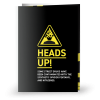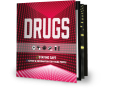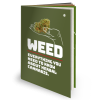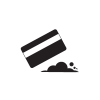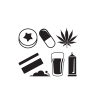SNORTING AND SWALLOWING DRUGS
Harm-reduction information and advice
SNORTING DRUGS
When you Snort drugs, they are absorbed via nasal membranes into the bloodstream, then to the brain, where effects begin quickly.
The effects start quicker, are more intense and end sooner than swallowed drugs, with a harsher comedown.
Snorting constricts nose blood vessels, reducing oxygen and causing mucus (snot) production, felt as a throat drip and runny nose.
The more you snort, the more snot is produced, and less drug is absorbed. The more you snort, the less effective it becomes!
The risks
-
Snorting stimulant-type drugs restrict the flow of blood to the inside of the nose. Restricting blood flow, plus the corrosive qualities of the drug or what it‘s cut with, can lead to nose bleeds and permanent damage to the inside of the nose.
-
Irritation, damage and bleeding inside the nose means sharing any snorting tube makes it easier to pass on viruses, such as hepatitis C. It only needs a microscopic amount of blood, too small to be seen by the naked eye, on the end of a tube to transmit a virus from one person to another.
-
Certain substances, particularly some new and emerging drugs that use corrosive chemicals in their preparation, can be particularly damaging to the nose and should not be snorted.
-
Some drugs can have completely different effects, with a small difference in the amount you use. Dose is easy to get wrong when snorting and can lead to unwanted and dangerous results.
Reduce the risks
-
Flush your nose with water after each session or line. It will help reduce the harm caused by the corrosive effects of the drugs.
-
Use a nasal spray or cup some water in your hands, snort the water, and then blow your nose.
-
Powder chopped as fine as possible will cause less damage to the nose and is easier to absorb.
-
Don‘t share snorting tubes or bank notes. Use your own and stick to it, or use the end of a key or your finger.
SWALLOWING DRUGS (bombing)
Swallowing drugs is probably the simplest and oldest method of taking drugs.
The drug is absorbed through the lining of the stomach and small intestine and then enters the bloodstream. The blood then carries the drug through the liver, where some is eliminated before passing through the heart and onto the brain.
Swallowing means the drug‘s effects may not be felt for up to 45 minutes, depending on stomach contents.
Powdered drugs are usually wrapped in tissue paper before being swallowed, known as bombing or parachuting. Alternatively, the powder could be added to a hot drink and swallowed.
The risks
- Drugs take time to digest. If you consume more before they take effect, there's a risk of taking too much, leading to overdose.
- Some stimulants can reduce blood flow to the gut, potentially causing ulcers or perforations.
- Over time, excessive drug use can harm the stomach, intestines, liver, and kidneys. If you have liver issues, it's especially crucial to avoid drugs.
Reduce the risks
- Reduce the risks by starting with a low dose and being patient. Don't take more if you don't feel immediate effects, as drugs can vary in strength or contain other substances you're not aware of.
- Consuming food before taking drugs can help mitigate potential stomach damage.
- Liquids like GBL can harm the throat, so always dilute them before use. Certain liquids, such as poppers, shouldn't be swallowed.

